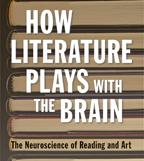Paul Armstrong, professor of English, has written a new book titled How Literature Plays with the Brain: The Neuroscience of Reading and Art (The Johns Hopkins University Press, 2013). “Literature matters,” says Armstrong, “for what it reveals about human experience, and the very different perspective of neuroscience on how the brain works is part of that story.” In How Literature Plays with the Brain, Armstrong examines the parallels between certain features of literary experience and functions of the brain. His central argument is that literature plays with the brain through experiences of harmony and dissonance which set in motion oppositions that are fundamental to the neurobiology of mental functioning.
Read more
